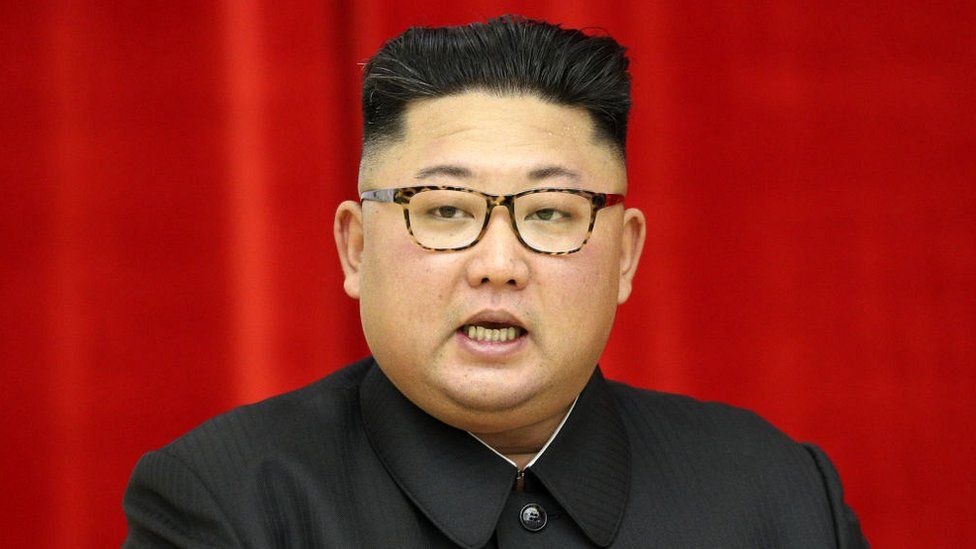Political Biography of North Korean Leader
Leader of north korea – The political journey of North Korea’s leader has been marked by both triumphs and controversies. From his rise to power to his ambitious policies, his leadership has had a profound impact on the country’s domestic and international landscape.
The enigmatic leader of North Korea, a figure shrouded in mystery and intrigue, commands the world’s attention. His influence extends beyond his own borders, reaching the hallowed halls of the Cross Hall in the White House , where decisions that shape global diplomacy are made.
The interplay between the leader of North Korea and the corridors of power in Washington, D.C., weaves a complex tapestry of international relations, where power dynamics and strategic maneuvering dance in a delicate balance.
Rise to Power
Born into a prominent political family, the leader rose through the ranks of the ruling Workers’ Party of Korea. He inherited the leadership mantle after the death of his father, the country’s founder, in 2011.
North Korea’s enigmatic leader, Kim Jong-un, has maintained an iron grip on power, fostering an unwavering loyalty among his nationals. These citizens, despite the hardships they face, remain steadfast in their support for the regime, their unwavering devotion a testament to Kim’s formidable leadership.
Key Policies
The leader has implemented a range of policies aimed at strengthening North Korea’s economy and military. These include:
- Byungjin: A dual-track policy of developing both nuclear weapons and the economy.
- Juche: A philosophy of self-reliance and independence from foreign influence.
- Songun: A military-first policy that prioritizes defense spending and the development of the armed forces.
Domestic Impact
The leader’s policies have had a significant impact on North Korea’s domestic affairs:
- Economic Growth: The country has experienced some economic growth under the leader’s leadership, but it remains one of the poorest in the world.
- Repression: The regime has maintained a tight grip on power, suppressing dissent and human rights violations.
- Nuclear Development: North Korea has continued to develop its nuclear weapons program, raising concerns about regional stability.
International Relations
The leader’s policies have also shaped North Korea’s international relations:
- Sanctions: The country has faced international sanctions due to its nuclear program, isolating it from the global community.
- Nuclear Diplomacy: The leader has engaged in diplomatic efforts with the United States and South Korea, but progress has been limited.
- Regional Tensions: North Korea’s nuclear and missile tests have raised tensions with neighboring countries, particularly South Korea and Japan.
Leadership Style
The leader’s leadership style is characterized by:
- Absolute Control: He maintains a firm grip on power, eliminating potential rivals and consolidating his authority.
- Personal Cult: The regime has cultivated a personality cult around the leader, portraying him as a charismatic and infallible figure.
- Strategic Thinking: He has shown a keen ability to maneuver in international negotiations, playing off major powers against each other.
Conclusion
The political biography of North Korea’s leader is a complex and evolving story. His policies and leadership style have had a profound impact on the country’s domestic and international affairs. As the country continues to navigate the challenges of the 21st century, the leader’s legacy will be shaped by the decisions he makes in the years to come.
Economic Policies and Development: Leader Of North Korea

North Korea’s economic policies under the leader have been characterized by a mix of state control and market reforms. The leader has implemented a series of economic development plans aimed at modernizing the country’s infrastructure, boosting industrial production, and improving living standards.
One of the key economic policies implemented by the leader has been the “Byungjin” policy, which seeks to simultaneously develop the country’s nuclear weapons program and its economy. The policy has been controversial, with some analysts arguing that it has diverted resources away from economic development and led to international sanctions that have stifled economic growth.
Foreign Investment and Trade
The leader has also taken steps to attract foreign investment and trade. In 2013, he established the Rason Economic and Trade Zone, a special economic zone designed to attract foreign investment and promote economic development. The zone has been met with mixed success, with some investors expressing concerns about the country’s political and economic stability.
Foreign Relations and Diplomacy

The leader’s diplomatic initiatives have played a pivotal role in shaping North Korea’s international standing. Through strategic engagement and negotiations, the leader has sought to improve relations with key countries and enhance North Korea’s global presence.
One of the most significant diplomatic achievements has been the establishment of diplomatic ties with South Korea. This historic step marked a thaw in relations between the two Koreas, paving the way for dialogue and cooperation. The leader’s willingness to engage with South Korea has been seen as a sign of his commitment to peace and stability on the Korean Peninsula.
Relationships with Other World Leaders, Leader of north korea
The leader has also cultivated relationships with other world leaders, including China, Russia, and the United States. These relationships have been crucial in shaping North Korea’s foreign policy and ensuring its survival. China, in particular, has been a close ally and a major economic lifeline for North Korea. The leader’s personal rapport with the Chinese leadership has played a significant role in maintaining this strategic partnership.
Nuclear Negotiations
The leader’s approach to nuclear negotiations has been a key aspect of his foreign policy. He has pursued a dual-track approach, balancing the development of nuclear weapons with diplomatic efforts to secure economic concessions and international recognition. This strategy has allowed North Korea to maintain its nuclear deterrence while also engaging in dialogue with the international community.
The implications of the leader’s nuclear negotiations are far-reaching. A successful agreement could lead to the denuclearization of the Korean Peninsula and a reduction in tensions in the region. However, the negotiations have also been fraught with challenges, and it remains to be seen whether a lasting solution can be achieved.